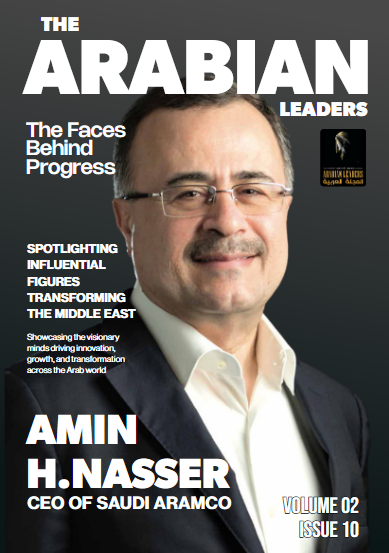Badriah Al-Bishr: A Literary Force in Saudi Arabia
Early Life and Education
Badriah Al-Bishr was born in 1967 in Riyadh, Saudi Arabia. Growing up in the heart of a conservative society, she demonstrated early signs of intellectual curiosity and a passion for storytelling. She pursued her higher education at King Saud University, where she earned both her bachelor’s and master’s degrees. Her commitment to academic excellence led her to continue her studies abroad, culminating in a PhD from the Lebanese University in 2005. This blend of local and regional academic exposure deeply influenced her writing style and thematic choices.
Academic and Teaching Career
Al-Bishr’s academic background is not only a foundation for her intellectual voice but also a key component of her professional journey. She has taught at Al Jazeera University in Dubai, where she helped shape young minds and future thinkers. Her role as an educator reinforced her belief in literature as a means of transformation, especially for women in the Arab world. Her academic influence is evident in the structured yet emotive prose she brings to both her fiction and non-fiction.
A Distinguished Journalist
Since 1997, Badriah has written a weekly column for Al Yamama magazine, earning a loyal readership with her candid discussions on societal issues, gender dynamics, and personal freedoms. Her columns are known for their boldness and intellect, often sparking nationwide conversations. In 2011, she made history by becoming the first woman to win the “Best Newspaper Column” prize at the prestigious Arabic Press Awards. She is also a regular contributor to Al Hayat, one of the leading newspapers in the Arab region.
Her journalism explores themes ranging from women’s empowerment to the constraints of tradition, offering nuanced perspectives that reflect both insider knowledge and critical distance. Through her voice, she challenges patriarchal norms and opens space for progressive discourse within a traditional framework.
Transition to Fiction
Badriah Al-Bishr’s leap into fiction was a natural progression of her storytelling abilities. Her first collection of short stories was met with acclaim, and she has since published three critically acclaimed novels that delve into the complexities of love, identity, and the female experience in Saudi Arabia.
Hind and the Soldiers (2005)
Her debut novel Hind and the Soldiers is considered a landmark in modern Saudi literature. The story explores the internal conflict faced by women trying to reconcile their desires with societal expectations. Hind, the protagonist, serves as a lens through which the struggles of an entire generation of Saudi women are examined. The novel’s candid tone and feminist undertones attracted both praise and controversy, establishing Badriah as a bold literary voice.
The Seesaw (2010)
In her second novel, The Seesaw, Badriah presents a more introspective narrative, focusing on the psychological turmoil of a woman navigating personal and familial expectations. The story metaphorically portrays the push and pull between tradition and modernity, using the motif of a seesaw to reflect the instability and imbalance experienced by women trying to find their place in a changing world.
Love Stories on al-Asha Street (2013)
Her third and most celebrated novel, Love Stories on al-Asha Street, was longlisted for the 2014 International Prize for Arabic Fiction (the Arabic Booker Prize). This novel paints a rich tapestry of love, repression, and resistance set against the backdrop of Riyadh’s al-Asha Street. Through multiple characters and layered narratives, Al-Bishr weaves an honest, complex portrayal of the intimate lives of women rarely seen in Arab literature. The book’s international recognition brought her work to a wider audience, further solidifying her status as a major voice in Arab letters.
Themes and Literary Style
Badriah Al-Bishr’s work consistently explores themes of gender, love, freedom, and social mobility. She addresses taboo subjects with courage, inviting readers into private spheres of Saudi life. Her style is both lyrical and direct, shaped by her journalistic background and academic training. She often writes in the first person or through deeply personal perspectives, lending her stories emotional depth and authenticity.
Her fiction often challenges binary notions of right and wrong, modern and traditional, or secular and religious. Instead, she presents a nuanced reality where her characters are constantly negotiating their place within a complex moral landscape. This literary strategy reflects the broader tensions within Saudi society as it undergoes rapid transformation.
Impact on Saudi Literature and Society
As one of the few prominent female literary figures in Saudi Arabia, Badriah Al-Bishr has paved the way for a new generation of writers—particularly women—who seek to tell their own stories. Her unapologetic engagement with controversial subjects has expanded the boundaries of what is considered acceptable in Saudi literature.
Her success also coincides with broader cultural reforms in Saudi Arabia, especially under the Vision 2030 initiative. While these reforms have opened new spaces for female voices in the public sphere, pioneers like Badriah were already laying the groundwork through their work years before such changes were officially sanctioned.
Personal Life
Badriah is married to the popular Saudi comedian and actor Nasser Al Qasabi. The couple has three children. While she keeps her private life largely out of the public eye, her family plays a vital role in her worldview. Her writing is informed by her personal experiences as a mother, wife, educator, and public intellectual. Despite her fame, she maintains a humble presence and continues to engage actively with her readers through lectures, media appearances, and public discussions.
Badriah Al-Bishr’s Legacy in Progress
A Feminist Voice in a Conservative Culture
Al-Bishr stands out as a rare voice that marries literary talent with sociopolitical awareness. She doesn’t just write for entertainment or acclaim; her work serves a larger purpose. It is a form of resistance, empowerment, and education for women navigating similar cultural landscapes.
Inspiring Future Generations
Her presence in both media and literature proves that a single voice, when used effectively, can influence public thought and cultural policy. Young writers, especially Arab women, look to her as an example of how one can maintain artistic integrity while pushing for change from within the system.
A Bridge Between Worlds
What makes Badriah Al-Bishr particularly unique is her ability to act as a bridge between seemingly oppositional worlds—East and West, tradition and progress, personal and political. She does so not by offering utopian solutions but by honestly portraying the everyday negotiations required in a life shaped by complexity.
Conclusion: The Enduring Influence of Badriah Al-Bishr
Badriah Al-Bishr is more than just a writer—she is a cultural catalyst. Her work encapsulates the voice of a woman who has not only observed the changing tides of her society but has also contributed to those very transformations. Through fiction and journalism, she has carved out a space for nuanced conversations about identity, gender, and progress in the Arab world.
As Saudi Arabia continues to redefine its cultural and social identity on the global stage, the voices of writers like Badriah will become ever more crucial. Her stories—rooted in local realities but rich with universal themes—remind us that literature remains one of the most powerful tools for reflection and reform.








